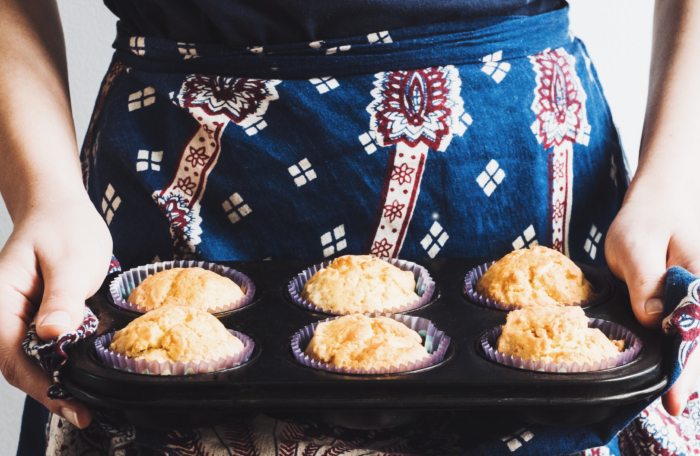Legislators remove sales cap for home-based food operations
It just got a lot easier to grow a home-based food operation in New Hampshire.
It’s long been legal to make what the state defines as non-dangerous food products in your kitchen and sell them to the public, under certain conditions. One of those conditions has been a cap on total sales revenue. If you sell no more than $35,000 worth of food, no state license is needed. A penny more, and you’re subject to state licensing and inspection.
Until July 1, that is.
House Bill 119, adopted on Thursday, removes revenue as a condition that would trigger state licensure.
As introduced, HB 119 would have doubled the sales cap to $70,000. But the House struck the income threshold entirely, and senators agreed to the change. Restrictions on food types and sales locations remain in place.
This might sound like a controversial change, but the bill sailed through the Legislature, passing the House in March and the Senate in May, both on voice votes. Fifty-three people signed up to testify on the bill during its Senate hearing, none in opposition. A veto is not expected from the governor.
The sales threshold had just been raised from $20,000 to $35,000 last year. Legislators’ efforts to rapidly expand and then eliminate that threshold are a testament to the growth of home-based food businesses in recent years and the general acknowledgement in Concord that the sales limits have served no valid public health purpose.
That’s probably because you can’t sell just anything you make in your kitchen. RSA 143-A:12 defines a homestead food operation as one in which food is prepared entirely in a residential kitchen, but the law prohibits these small businesses from selling foods that require temperature control (think dairy products or anything else that must be frozen or refrigerated) and certain canned foods. Sales locations are also limited to residences, farm stands, farmer’s markets, and retail locations. A home-based food business that meets those conditions is exempt from state regulations that apply to food service establishments and retail food stores.
There was bipartisan agreement in both the House and Senate that eliminating the sales threshold would eliminate a needless burden for home cooks, bakers, jam makers, and similar food vendors who sell non-hazardous food products prepared in a residential kitchen.
A small, home-based food business, for example, will be able to scale up without having to worry about becoming subject to state licensure after a few successful fall fairs.
The House Environment and Agriculture Committee “heard in testimony that the current annual gross sales threshold is not even tracked or reported by DHHS Food Safety Division, and there is no violation penalty for going over the current threshold, so there is no real reason to have it in current statute,” according to the committee report. “Also, the one size fits all approach on annual gross sales makes no sense due to the varying sale price of goods offered for sale, and this bill will also eliminate that issue,” the committee further noted.
Non-potentially hazardous foods that home-based entrepreneurs will be able to sell more freely include breads, baked goods, candy, fudge, packaged dried products, dried herbs, roasted whole bean coffee or ground coffee, and jams and jellies, among others.
Examples of potentially hazardous foods that homestead food operations are prohibited from selling include “processed acidified and low-acid canned foods” like pickles, salsa, and relish. Others include meat, poultry, fish, eggs, milk and other dairy products, cut fruit and vegetables, baked potatoes, mushrooms, and more.
By removing the maximum sales cap, HB 119 would improve New Hampshire’s standing amongst other states’ homestead food laws. According to a survey by the Institute for Justice of homemade food laws across the 50 states, New Hampshire has an overall C grade and a C+ for its homestead license laws (before HB 119).
Massachusetts and New York have similar grades of C and C+, respectively, while Florida has a B-, Tennessee has a B+, and Maine has a B+ in cities and counties with their own food sovereignty ordinances.
While the bill removes a state-level regulatory hurdle, New Hampshire will still have 15 self-inspecting cities and towns with their own licensing requirements for homestead food operations within their borders.
The only drama involved with this bill came when legislators tacked on an amendment allowing the sale of uninspected elk and red deer meat in addition to bison.
The bill exempts farms that raise elk or red deer for human consumption, as well as their direct sale, from licensing and inspection requirements, provided the animals are slaughtered and processed in accordance with state law. The slaughtering of these animals and their preparation for sale are also exempt from inspection.
HB 119 adds elk and red deer to the labeling and purchasing rules that already exist for uninspected bison.
The legislation itself sunsets these changes regarding elk and red deer meat. Unless reauthorized by the Legislature, these food service and meat inspection exemptions will automatically end in 2025. This allows the state a two-year period in which to test whether eliminating regulations causes any public health issues.
The easy passage of HB 119 is an encouraging sign that legislators are paying closer attention to unnecessary food regulations that burden residents without improving public health.



